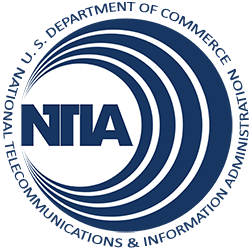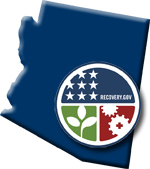Project Components
State Broadband Capacity Building:
This project will strengthen the Government Information Technology Agency-Arizona’s (GITA) state planning activities that began under the initial SBDD award, allowing the state to fully integrate broadband planning into state activities for the full five years of the project. Staff will support the new broadband advisory council, complete a statewide strategic plan, and engage in research and policy planning for key issues such as rights-of- way (ROW), permitting, and state universal service fund opportunities.
Technical Assistance:
In partnership with the Arizona Telecommunications Information Institute and numerous community colleges that provide small business development assistance, GITA will convene regional events that disseminate broadband availability and policy information to small businesses and local governments. GITA’s support to local governments will focus on ROW, permitting, and intra-government broadband coordination efforts. The project’s support for small businesses will be provided by incorporating broadband-related technical assistance into existing small business development programs housed at rural community colleges throughout the state.
Local Regional Planning Teams:
GITA has already identified seven of the planning teams, and will soon have identified leadership for the eighth. The planning teams are: Pinal County Broadband, Prescott Regional Planning Council, Verde Valley Broadband Cooperative, Northern Arizona Council of Governments, White Mountain Regional Planning, LaPaz County, and the Cochise County Communications Group. Each planning team will be eligible for funds to support the identification of broadband and IT resources in the community, the development of local plans and goals, and the acquisition of grant funds or private financing to support broadband deployment.
Data Collection, Integration, and Validation:
This project was originally funded for broadband planning activities and two years of data collection. In September of 2010, this project was amended to extend data collection activities for an additional three years and to identify and implement best practices.
Address File Development:
The Arizona State Cartographer’s Office at the Arizona State Land Department will partner with the Arizona E‐911 Program to assist counties in developing accurate and current geocodable street networks and address point locations in 15 Arizona counties. This data will greatly assist the Arizona Broadband Mapping Project by providing a quality data resource for data development and verification, especially where census blocks are larger than two square miles.

